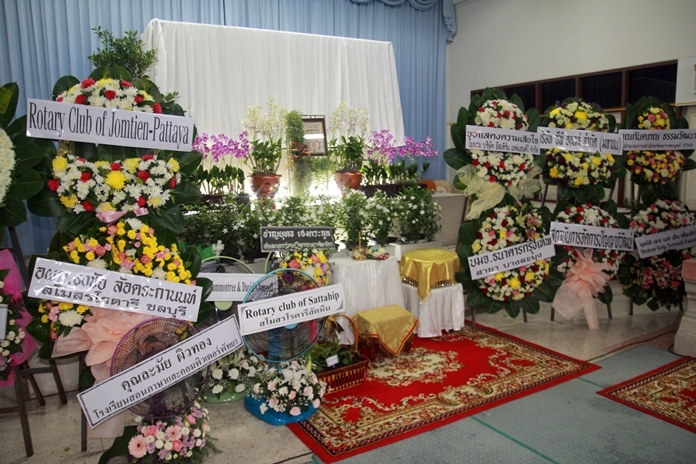
Thai funerals seem inappropriate to many Westerners. This could be because of the difference between the Thai and Western ethos.
As most who read this are Westerners, you do not need explanations of your own cultures.
The Thai, first animist and then Buddhist, have a different view of death than the westerner.
The Thai funeral is a not a mourning of death or a party showing denial.
Thai funerals are a celebration of change. Something has occurred. In Thai life, the two most important rites of passage are birth and death. Not puberty, not college graduation, not marriage.
Birth and death are the only major rites of passage which cannot be avoided and Thai accept this.
These two rites are looked upon with different emotions in the west. Birth is happy and death is sad.
Thai culture applies both sadness and happiness to both birth and death.
One may be happy when a child is born. Another member is added to a family. There is someone new to love. There is joy. There might be worldly success.
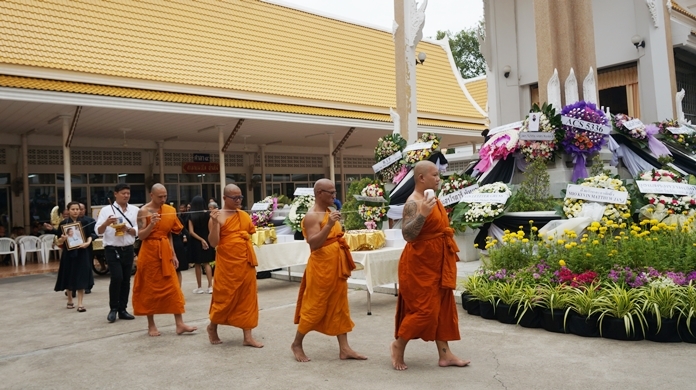
One is also sad when a child is born. A truly liberated soul need not be born. There will be disease. There will be disappointments. There will be failures.
The Thai people have truly internalized the duality of life. This may not seem so to many Westerners. But, if you know a Thai person well, ask them about life. They will tell you it is misery.
The Westerner who thinks they know Thai people will quickly point out that fun or ‘Sanuk’ is the most important thing in a Thai person’s life. They take nothing seriously. The Thai takes every chance for enjoyment and self-gratification.
The Westerner is very right.
What is usually not considered is why Thai people are this way.
They are this way because life, for them, is misery and sorrow. Consequently, one must enjoy one’s self whenever possible.
Ask any Thai. They will tell you that there is much more misery than fun in life.
Thai people are realists. They do not consider misery a burden to be nobly borne.
This does not mean total neglect of other’s feelings. But scant attention is paid to the ‘unnecessary’.
This may be where the Western and Thai ethos diverge.
What is necessary and what is not? This is for the individual to say.
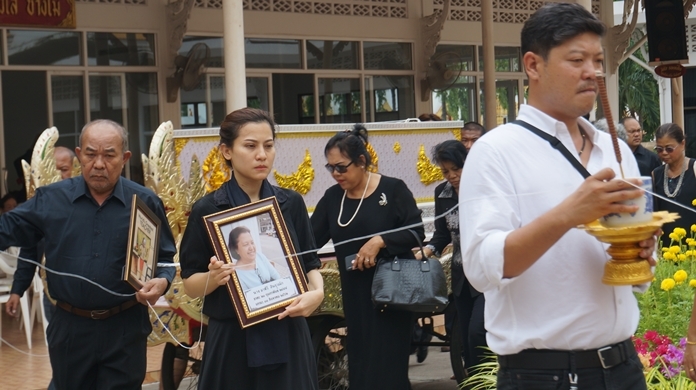
In Thai culture, the most necessary thing is to not ‘hurt’ other people.
The Thai word for this is Bied-Bien. It is so profoundly Thai, it cannot be translated into English.
The Thai people realise that this happens, but they try to avoid it.
So, Thai people believe they should try to enjoy life as much as possible. To not do this would cause self-doubt and depression.
The Westerner laughs derisively and thinks, ‘No wonder the country doesn’t develop as fast as it should.’
The Thai ethos would answer, ‘And why should it? At last, I will die, you will die and my children will die.’
Is this correct or incorrect?
Then one dies.
This is both a sad and happy occasion, like the birth of a child. Sad because the person will no longer be there to love. To joke with. To eat and drink with.
This is also a happy occasion. The person will have no more misery. They will have no more illness.
The Thai funeral follows this ethos. The Thai people are not credulous. Part of this is due to the teaching of Buddha.
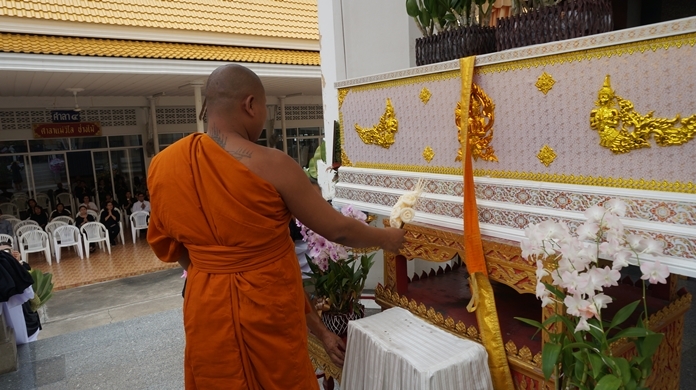
When Buddha attained enlightenment, he taught many things. He taught of the Dhamma. He taught of Karma. He taught of re-birth.
The most important aspect of Buddha’s teaching was this:
At the end of every lesson he would say; ‘I know for myself.’ He would then add; ‘But do not believe anything I say. You must see with your own eyes. You must hear with your own ears. You must feel with your own hearts.’
This is the basis of the Thai ethos and the duality of a Thai funeral. There may be life after death or there may be no life after death.
A Thai funeral is a celebration of life.
It is also a celebration of death.
If there is no life after death, the loved ones at the funeral are celebrating the person’s escape from all sadness.
If there is life after death, and the soul retains sentience, the celebration is to show the soul that everyone is happy. The soul need not worry. The soul may go where it may or must.
People know their loved one is happy to see them happy.
They then take the person’s body and burn it. It is a useless vessel. They do not want the soul, if there is one, to see it. They are happy to burn it.
All this is sometimes confusing for the Westerner.
One Westerner understood this. He used this duality to change the world. He believed many aspects of the universe could be explained by Buddha’s teaching.
His name was Albert Einstein.
He said the teachings of Buddha made him understand a concept. He called it relativity.
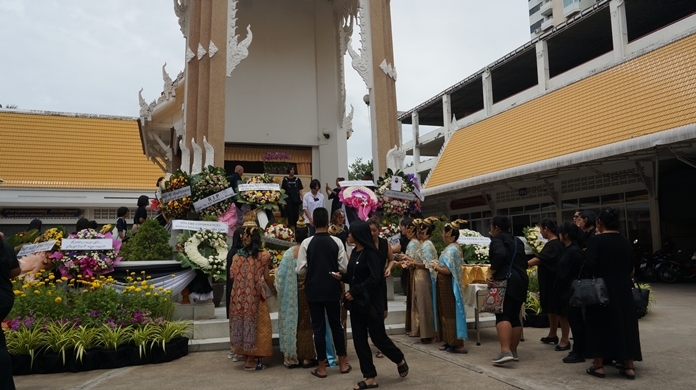
 |
 |
 |





